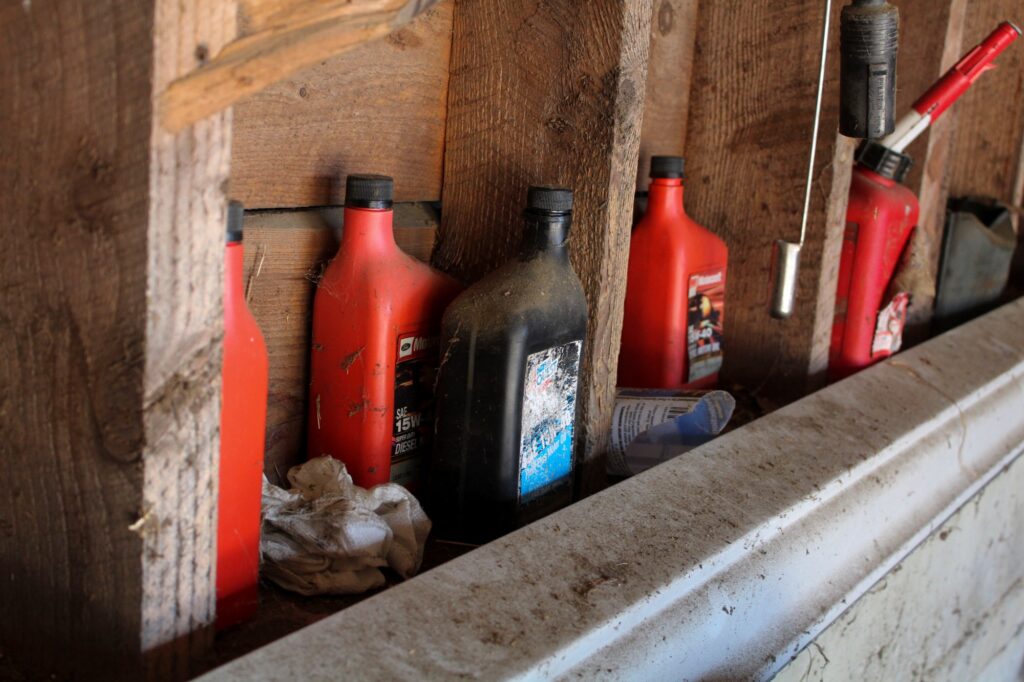For the do-it-yourselfers of the automotive world, you can save a lot of money (and sometimes time) by replacing or topping off your automotive fluids yourself. From the ubiquitous windshield wiper fluid many people have to the more heavy-duty transmission and brake fluid, once you have these products, they can be hard to dispose of at home. Learn more about the chemicals that make automotive fluids work and how they impact waste disposal.
Dealing with New & Used Automotive Fluids
Once you’ve collected containers of unused, opened, or used automotive fluids, dealing with automotive waste can pose a problem. Learn more about the types and their disposal methods below.
Windshield Wiper Fluid
This typically contains cleaning products such as solvents. Empty bottles can be placed in the recycling, but unopened ones should be used up or given away, while filled containers of used products should be taken to disposal facilities.
Brake Fluid
Most modern brake fluids are glycol-ether-based but can also be mineral oil or silicon-based. Empty containers can be thrown in the trash, but unopened ones should be used up or given away, while filled containers of used products should be taken to proper facilities.
Transmission Fluid
Automatic transmission fluid (ATF) contains multiple liquids, including petroleum derivatives for lubrication, and may also be used as a vehicle’s hydraulic fluid. It should be treated similarly to motor oil for disposal.
For other kinds of automotive fluids and their handling and disposal options, such as car antifreeze and coolant, check out our blog, Is Car Antifreeze and Coolant Hazardous Waste?
Other Forms of Automotive Waste
Of course, if you’re swapping out your own automotive fluids, you might also be accumulating other forms of automotive waste. Below, you’ll find quick entries for other major forms of hazardous waste for vehicles, along with disposal options.
- Motor Oil and Oil Filters: Motor oil and motor oil filters (which are filled with motor oil) can’t be disposed of at home. Either return it to the store where purchased or take it to a disposal facility. If the motor oil is contaminated, there may be further restrictions.
- Car Batteries: Almost all car batteries (unlike household ones) are lead-acid batteries—either wet cell (also known as flooded) batteries or absorbed glass mat (AGM) batteries. Auto stores have a return policy, or you can take them to a disposal facility.
- Gasoline: Did you know that gasoline can go bad? If you’ve got some at home for auto or tool use, make sure to store it properly to maximize shelf life and limit fire risks. Learn more in our blog, Storing Gasoline at Home and When to Dispose of It.
If you’re in New England, consider coming to one of NEDT’s Household Hazardous Products Collection Centers to deal with your automotive waste and other common household hazardous products. We have multiple locations in MA to make disposing of hazardous waste easier and a pick-up service for those who can’t make it in. Contact us today to learn more, or call us at 1.866.769.1621!



Leave a Reply